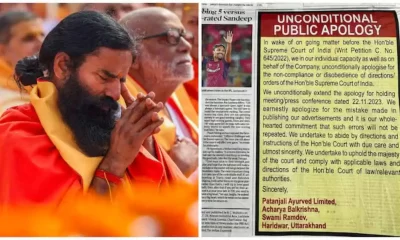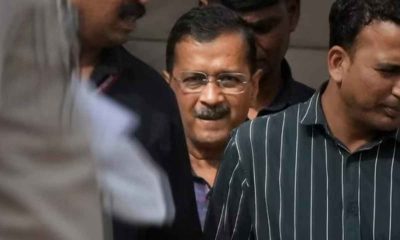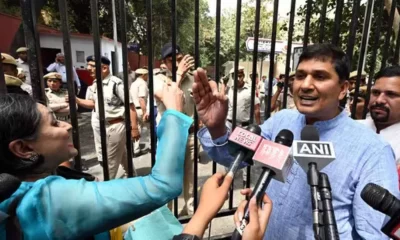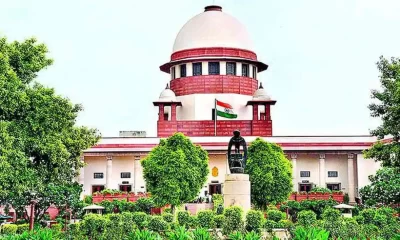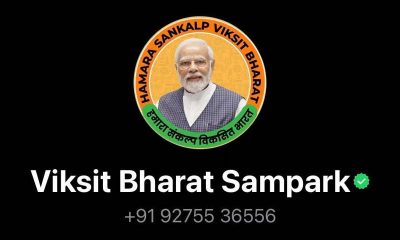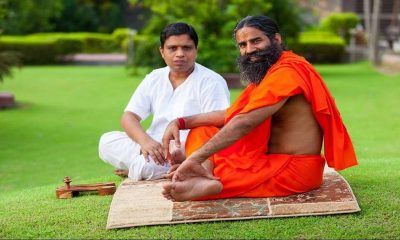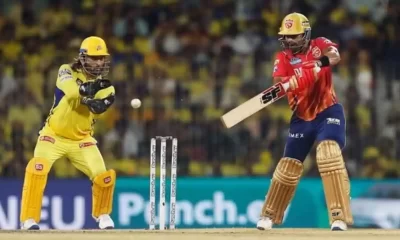India News
Setting up hub to monitor social media will create surveillance state: SC

The Supreme Court on Friday, July 13, said that Modi government’s decision to set up a social media hub for monitoring online data is “like creating a surveillance state”.
The remarks came when a Supreme Court bench of CJI Dipak Misra and Justices AM Khanwilkar and DY Chandrachud was hearing a PIL moved by a Trinamool Congress MLA Mahua Moitra against the Central government’s proposed move to set up a ‘Social Media Communication Hub’.
Under the proposed move, the Ministry of Information and Broadcasting (I&B Ministry) is to set up a mechanism at the district-level for collecting and analysing digital and social media content.
Appearing for TMC MLA Mahua Moitra, senior advocate AM Singhvi said the government has issued a request for proposal and the tender will be opened on August 20. “They want to monitor social media content with the help of this social media hub,” PTI quoted Singhvi as saying.
Singhvi said this would give government access all data on Twitter, Facebook, Instagram and emails and the move was completely violative of the right to privacy and would be invasive of the fundamental rights.
Justice DY Chandrachud then observed: “Tracking and regulating social media content will transform us into a surveillance state.”
Subsequently, the bench agreed to examine the matter and sought assistance of Attorney General KK Venugopal. It also issued a notice, calling for a formal reply from the Ministry concerned.
The Broadcast Engineering Consultants India Limited (BECIL), a Public Sector Undertaking (PSU) under the I&B ministry, had floated a tender to supply a software for the creation of a Social Media Communication Hub. “A technology platform is needed to collect digital media chatter from all core social media platforms as well as digital platforms such as news, blogs… In a single system providing real-time insights, metrics and other valuable data,” the tender document said
Under the project, media persons would be employed on contractual basis in each district to be the “eyes and ears” of the government and provide real-time updates from the ground. According to the tender document, the platform is expected to provide automated reports, tactical insights and comprehensive work-flows to initiate engagement across digital channels.
“The platform maybe used to disseminate content and hence, should support publishing features,” the document says, adding the platform needs to power a real-time New Media Command Room,” the tender document said
It said it will enable the ministry “to grasp the effect of various social media campaigns conducted on various schemes run by the Government of India” to “improve the scope” of such campaigns and “to make a specific theme trending”.
It is to be noted that the issuing diktats against the media has become a regular affair at the I&B Ministry. Not very long ago, the ministry had to pull out a notification mandating punishment to journalists on the basis of mere allegations of “fake news” through withdrawal of their accreditation – a government-issued badge that allows them access to government ministries and other offices.
A separate matter relating to WhatsApp licensing policy is also pending in the Court where the moot contention is again about letting the service provider read the content before passing it on to the recipient.
In that batch of matters, the Court had observed that the 2017 ruling on the right to privacy will have a huge impact on any attempt to regulate social media.
The court listed the matter for further hearing on August 3.
2024 Lok Sabha Elections
Farooq Abdullah accuses PM Modi of trying to divide the country over religion
Faroukh Abdullah reacted to PM Modi’s remark that the Congress will redistribute people’s money and property to Muslims if voted to power and said Muslims respect all religions. He said that they are Muslims and Allah has told them to respect other religions. He further added that a Muslim cannot snatch anyone’s right.

Farooq Abdullah, Jammu and Kashmir’s National Conference President said on Wednesday that Prime Minister Narendra Modi was trying to divide the country over religion. He also said that those who will vote for them must prepare for hell. Farooq Abdullah said Muslims cannot snatch away the rights of others.
Farooq Abdullah also called Prime Minister Narendra Modi-led government a threat to the survival of the country. Omar Abdullah, former Jammu and Kashmir chief minister cautioned the people not to divide this country on the basis of religion, otherwise a storm will unleash making the survival of the nation difficult. He said it is better to talk about uniting the country, instead of dividing its people.
He was addressing an election rally in Thanamandi area of the Rajouri district in Jammu and Kashmir. The Anantnag parliamentary constituency will go for elections on May 25. Faroukh Abdullah reacted to PM Modi’s remark that the Congress will redistribute people’s money and property to Muslims if voted to power and said Muslims respect all religions. He said that they are Muslims and Allah has told them to respect other religions. He further added that a Muslim cannot snatch anyone’s right.
He remembered an incident when former Prime Minister Rajiv Gandhi once stopped his car in Pulwama and assured a poor Hindu woman that he would give her a mangalsutra as she could not afford it. Farooq Abdullah said those who were against the INDIA bloc are against the nation.
Prime Minister Narendra Modi had earlier sparked a controversy last month as he commented that the Congress would take away the hard-earned money of the masses and distribute them among infiltrators and those with many children. Speaking at a rally today, the Prime Minister took a jibe at the Congress and said the governments in the past were not able to implement the Indian Constitution in Jammu and Kashmir. He was referring to the revocation of Article 370.
India News
Karnataka CM Siddaramaiah writes to PM Modi, urges home ministry to cancel diplomatic passport of Prajwal Revanna
CM Siddaramaiah wrote in the letter to PM Modi that he must be aware of the serious case of alleged sexual exploitation of a number of women by the sitting Hassan Lok Sabha member of Parliament (MP) and the NDA candidate, Prajwal Revanna, for the same constituency for the ongoing 2024 Lok Sabha elections.
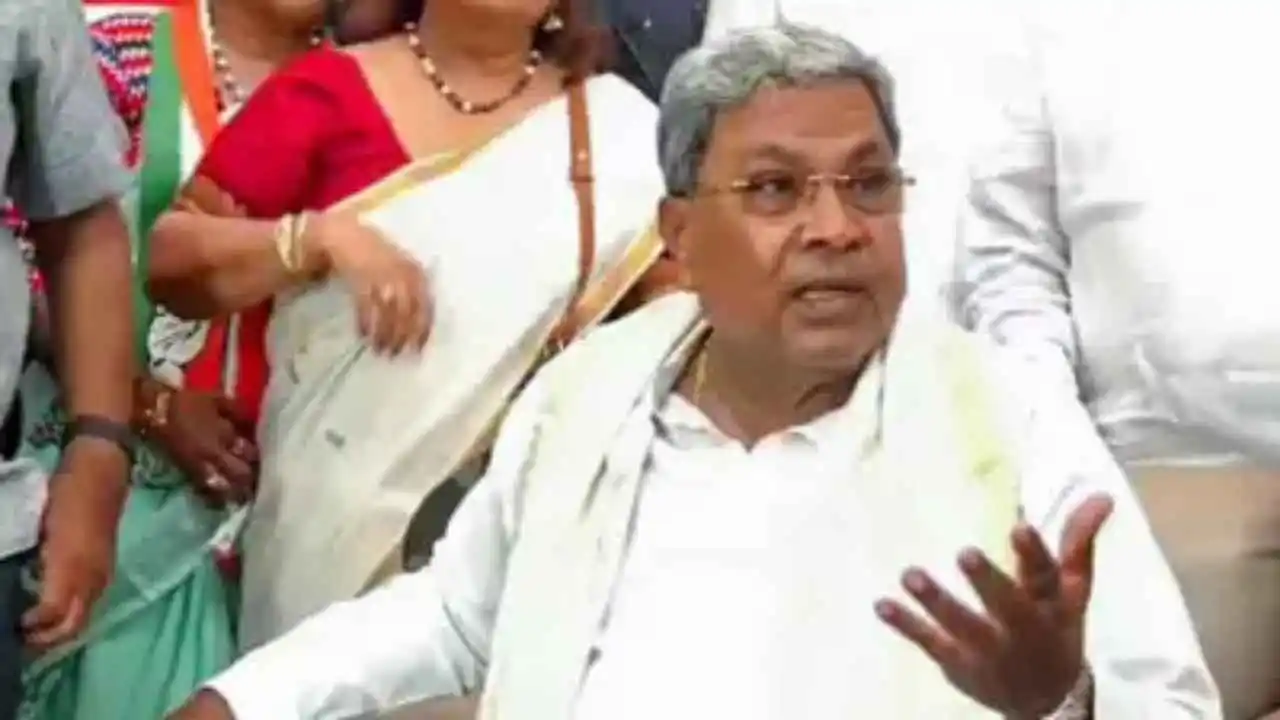
Karnataka Chief Minister Siddaramaiah on Wednesday wrote to Prime Minister Narendra Modi, where he urged the Home Affairs Ministry to cancel the diplomatic passport of Prajwal Revanna. Earlier a day before Revanna was suspended by JD(S) amid a row over explicit videos. Revanna is believed to have escaped to Germany shortly after the first phase of elections ended in Karnataka on April 26, in which he was JD(S)-BJP’s candidate from Hassan.
CM Siddaramaiah wrote in the letter to PM Modi that he must be aware of the serious case of alleged sexual exploitation of a number of women by the sitting Hassan Lok Sabha member of Parliament (MP) and the NDA candidate, Prajwal Revanna, for the same constituency for the ongoing 2024 Lok Sabha elections.
The Karnataka Chief Minister wrote in letter that the Congress government in Karnataka has constituted a Special Investigation Team to investigate the allegations against Revanna. The SIT is working day and night to investigate the allegations of crimes against several women by Prajwal Revanna and getting him back to the country is of utmost importance so that he faces investigation and trial as per the existing law of the land.
Siddaramaiah urged PM Modi to move the Home Ministry to take swift action to cancel the diplomatic passport of Prajwal Revanna and appropriate action must be taken using diplomatic and police channels of the Government of India as well as international police agencies to ensure the swift return of the absconding member of parliament to face the existing law of the land.
Suspended JD(S) leader Prajwal Revanna, accused of sexually assaulting multiple women, broke his silence on Wednesday and said that truth will prevail soon. In his first response since the controversy erupted, Prajwal Revanna said on X that he is not in Bengaluru currently and has communicated the same to CID.
India News
Amit Shah says BJP will neither remove reservation for SCs, STs and OBC, nor will allow Congress to do so
The Home Minister alleged that the Congress’ formula was to speak lies loudly, publicly and repetitively. He advised Congress president Mallikarjun Kharge not to speak lies for a family as eventually he will have to take the blame for the party’s loss in the Lok Sabha elections

Union Home Minister Amit Shah on Wednesday continued to attack Congress over reservation row. He was addressing a rally in Katghora town of Chhattisgarh’s Korba district to campaign for Saroj Pandey, BJP candidate from the Korba Lok Sabha seat where Shah said BJP will neither remove reservation for SCs, STs and OBCs, nor will it allow Congress to do so.
The Home Minister alleged that the Congress’ formula was to speak lies loudly, publicly and repetitively. He advised Congress president Mallikarjun Kharge not to speak lies for a family as eventually he will have to take the blame for the party’s loss in the Lok Sabha elections. Shah accused Congress of nurturing terrorism and Naxalism to win the Lok Sabha elections.
Shah further added that Congress claims if Prime Minister Narendra Modi ji gets majority for the third term, he will scrap reservation. He said the grand old party has even circulated his fake video. Shah said that have been in power for the last 10 years and PM Modi did not remove reservation, nor will he do it in the future.
The Union Home Minister further asserted Modi ji used the majority to scrap Article 370 and triple talaq, construction of Ram Mandir in Ayodhya and introduce the Citizenship Amendment Act. He further told the Congress President Mallikarjun Kharge that Rahul Gandhi and Priyanka Gandhi do not belong to anyone. He said on June 4 Congress will suffer defeat and the brother-sister duo will remain safe, but Kharge ji will be blamed.
Shah further asserted if PM Modi becomes the prime minister for the 3rd straight term, then Naxalism will be uprooted in two years in Chhattisgarh. Shah targeted the previous Bhupesh Baghel-led government in Chhattisgarh and said, The Bhupesh Kakka government encouraged Naxalism, but after the BJP came to power in the state under CM Vishnu Deo Sai and Deputy Chief Minister Vijay Sharma 95 Naxalites have been eliminated in 4 months.
-

 Entertainment18 hours ago
Entertainment18 hours agoOn wife Anushka Sharma’s birthday, Virat Kohli says he would’ve been lost without her
-

 Entertainment17 hours ago
Entertainment17 hours agoPushpa Pushpa: Allu Arjun starrer Pushpa 2 first song released
-
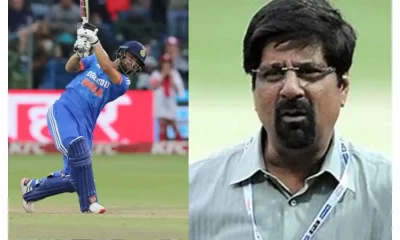
 Cricket news23 hours ago
Cricket news23 hours agoK Srikkanth slams Rinku Singh’s exclusion from T20 World Cup squad, says Rinku Singh has been made a scapegoat
-

 Entertainment23 hours ago
Entertainment23 hours agoKatrina Kaif deepfake video goes viral, social media says it is getting scary
-
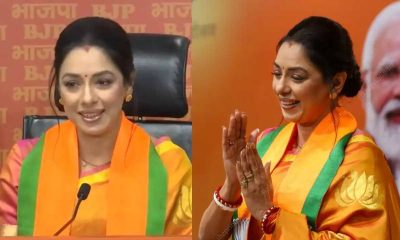
 2024 Lok Sabha Elections22 hours ago
2024 Lok Sabha Elections22 hours agoLok Sabha elections 2024: Anupamaa actor Rupali Ganguly joins BJP, says she feels she should also be a part of this Mahayagya
-

 2024 Lok Sabha Elections21 hours ago
2024 Lok Sabha Elections21 hours agoPriyanka Gandhi says PM Modi is far away from reality of common people, calls him an egoistic person
-

 India News19 hours ago
India News19 hours agoAmit Shah says BJP will neither remove reservation for SCs, STs and OBC, nor will allow Congress to do so
-

 India News20 hours ago
India News20 hours agoSalman Khan house firing: Accused Anuj Thapan dies by suicide in Mumbai Police custody

